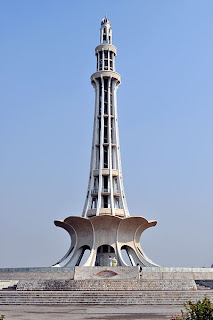Since the advent of Zardari's Pakistan People's Party (PPP) led government in 2008, governance in Pakistan has all but disappeared. Some may refer to the deterioration as 'creative chaos' but in reality the decline is simply a manifestation of an incompetent government with a corrupt leadership comprising of politicians who have no desire to address any national issues. Their only wish being to retain the privileges of power.
After spending years in the political wilderness, Khan's party the Tehreek Insaf (PTI) is knocking on the doors of Pakistan's political mainstream. For a politician who has yet to win an elections in his own parliamentary constituency, the PTI's progress is no small achievement.
The ordinary Pakistani voters' disillusionment with the country's two main established political parties, the PPP and Nawaz Sharif's Pakistan Muslim League-N, is a major contributing factor to the PTI's popularity.
A vote for PTI is a protest vote. A desperate electorate's plea for help. An electorate repeatedly abandoned and deceived by established politicians. Significantly, Pakistan's protest voters have not turned to Islamic parties, primarily because the orthodox religious establishment is a pillar for the existing decayed political structure.
Khan's success with the PTI bodes well for the future of Pakistani politics.
The party has not shied away from public discussion about difficult political or economic issues. Consequently, not only has public awareness about important national issues increased but, most importantly, the standards for policy debate have improved. Pakistan's vibrant television media - always looking for the next sensational news item - has latched onto the PTI's agenda as a tool to take the establishment to task.
Moreover, the PTI has struck a chord with Pakistan's normally apathetic youth. Suddenly, politics is no longer a dirty and dangerous pastime, but a national obligation. The PTI's 'tsunami' of change is predicated upon politicizing large numbers of young voters.
The PTI has also galvanized educated professionals into action. Many professionals, alarmed at the prospect of retiring in a 'Failed State,' have moved beyond heated debate during whiskey drinking sessions and entered the political arena. Whether such 'technocrats' are merely PR 'talking heads' or they will exercise significant policy making influence within the party remains to be seen.
 |
| The Minar-e-Pakistan: erected on the site where the Pakistan Resolution was passed in Lahore in 1940 |
To most Pakistanis, Imran Khan is a cricketer who also built the Shaukat Khanum Memorial Cancer Hospital and Research Centre. Khan was a playboy who turned into a pseudo-mullah, an anglophile become 'desi.' For Pakistani voters, the PTI may be a naive, confused political party but it does hold out hope for positive change for a people who deserve better than criminals and gangsters walking the corridors of power.
__________________
Imran is a business and management consultant. Through his work at Deodar Advisors and the Deodar Diagnostic, Imran improves profits of businesses operating in Singapore and the region. He can be reached at imran@deodaradvisors.com.















No comments:
Post a Comment